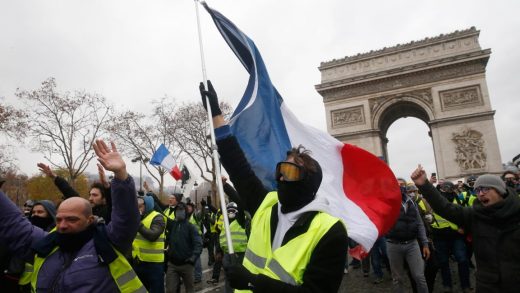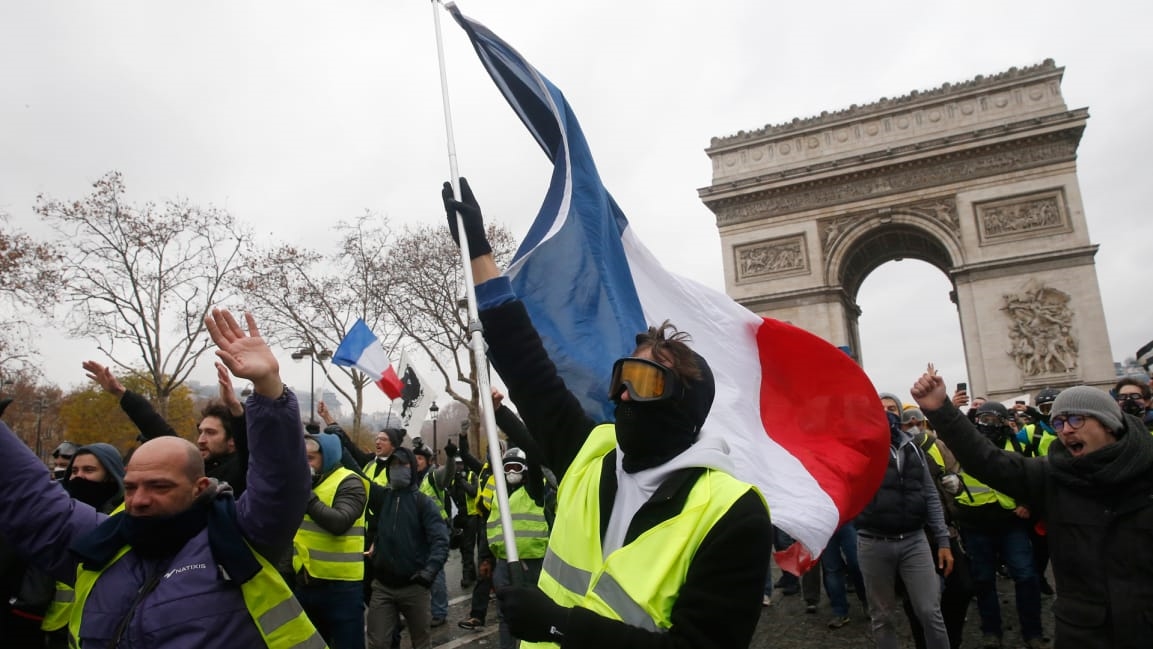France to freeze fuel tax in concession to the Yellow Vests protest
Over the last few weeks, citizens in Paris–along with other French cities and towns–have taken to the streets in protest. Some of these events have turned violent; French authorities have turned to teargas, while some protestors vandalized the surroundings and set some streets ablaze. Demonstrations outside of Paris have even led to a few deaths, mostly due to car accidents caused by road blockades.
Though this could be categorized as a more universal class-based uprising against the country’s elite, one of the movement’s primary catalysts was a planned fuel tax aimed at helping France rely more on renewable energy sources. Many citizens from rural and suburban areas who rely on cars as a primary mode of transportation–with no or few options for public transportation–took this to be a direct hit at them. And so they took to the streets wearing the yellow reflective vests required in every vehicle. Thus the movement’s name was born: “Gilets Jaunes,” or Yellow Vests.
Now it seems like the French government is changing course. Le Monde reports today that French prime minister Édouard Philippe is going to announce plans to suspend the planned fuel tax. The question remains whether or not this will stop the movement from continuing to take to the streets; there have been plans shared widely on social media for another protest this coming Saturday.
While the fuel tax was the most tangible thing the citizens could latch onto to protest, the movement’s discontent is much more far-reaching. Many people participated in the protests because of the overall futility they feel as the country continually raises the cost of living. For many, it’s become a social movement fighting the rule by rich cosmopolitan city folks.
Since the Gilets Jaunes have focused on a very universal concern (as well as a bipartisan dislike for President Emmanuel Macron), it’s been embraced by both the far left and far right–making it an even more difficult political event to categorize. There have been reports of racist, homophobic, and nationalistic outbursts during protests, meanwhile some radical left French groups have also been participating as well. They all seem to feel that direct–sometimes violent–action on the streets is the only way to bring about real political change. Some, however, fear that the movement is becoming more aligned with xenophobic and/or nationalist political groups. Given some of the nationalistic discourse surrounding the Gilets Jaunes, there’s a distinct possibility that it could evolve into something similar to Italy’s anti-immigration Five Star Movement.
For now, the general sense is that many French citizens do not feel represented by their government–namely Macron–and they are taking to the streets until the government shuts down. This fuel tax moratorium indicates that the politicians are beginning to take the protestors seriously, but it’s unclear if this one policy move will be enough to quell the rising movement.
(19)



